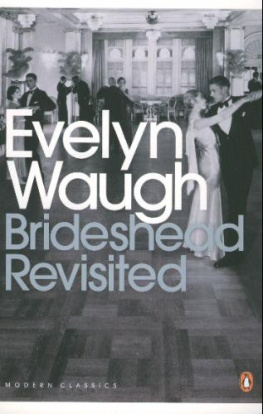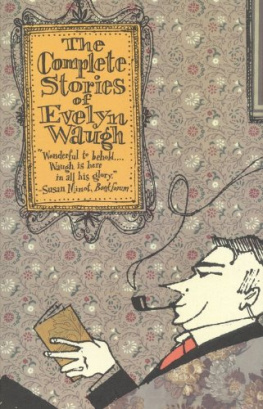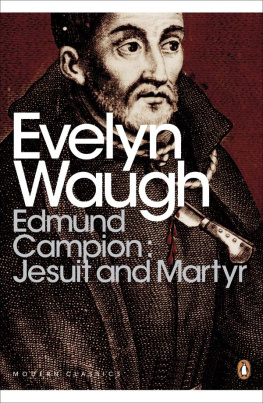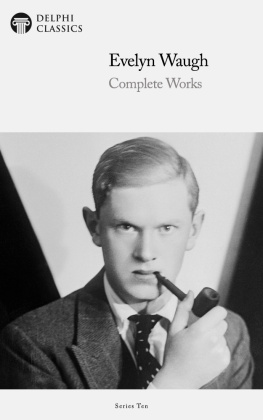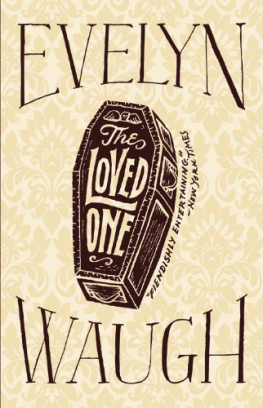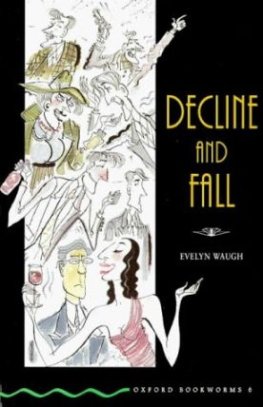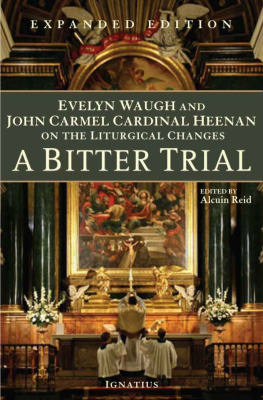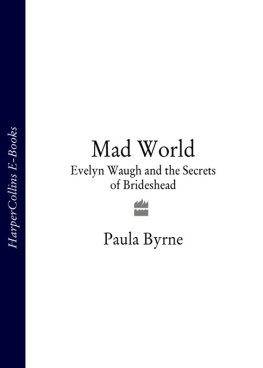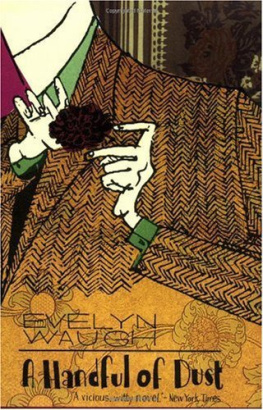Brideshead Revisited
THE SACRED AND PROFANE
MEMORIES OF
CAPTAIN CHARLES RYDER
A NOVEL BY
EVELYN WAUGH
To Laura
AUTHORS NOTE
I amnot I: thou art not he or she:
they are not they
E.W.
Preface
THISnovel, which is here re-issued with many small additions and some substantialcuts, lost me such esteem as I once enjoyed among my contemporaries and led meinto an unfamiliar world of fan-mail and press photographers. Its theme theoperation of divine grace on a group of diverse but closely connectedcharacters was perhaps presumptuously large, but I make no apology for it. Iam less happy about its form, whose more glaring defects may be blamed on thecircumstances in which it was written.
In December 1943 1 had the good fortune when parachuting toincur a minor injury which afforded me a rest from military service. This wasextended by a sympathetic commanding officer, who let me remain unemployeduntil June 1944 when the book was finished. I wrote with a zest that was quitestrange to me and also with impatience to get back to the war. It was a bleakperiod of present privation and threatening disaster the period of soya beansand Basic English and in consequence the, book is infused with a kind ofgluttony, for food and wine, for the splendours of the recent past, and forrhetorical and ornamental language, which now with a full stomach I finddistasteful. I have modified the grosser passages but have not obliterated thembecause they are an essential part of the book.
I have been in two minds as to the treatment of Juliasoutburst about mortal sin and Lord Marchmains dying soliloquy. These passageswere never of course, intended to report words actually spoken. They belong toa different way of writing from, say, the early scenes between Charles and hisfather. I would not now introduce them into a novel which elsewhere aims atverisimilitude. But I have retained them here in something near their originalform because, like the Burgundy (misprinted in many editions) and the moonlightthey were essentially of the mood of writing; also because many readers likedthem, though that is not a consideration of first importance.
It was impossible to foresee, in the spring of 1944, thepresent cult of the English country house. It seemed then that the ancestralseats which were our chief national artistic achievement were doomed to decayand spoliation like the monasteries in the sixteenth century. So I piled it onrather, with passionate sincerity. Brideshead today would be open to trippers,its treasures rearranged by expert hands and the fabric better maintained thanit was by Lord Marchmain. And the English aristocracy has maintained itsidentity to a degree that then seemed impossible. The advance of Hooper hasbeen held up at several points. Much of this book therefore is a panegyricpreached over an empty coffin. But it would be impossible to bring it up todate without totally destroying it. It is offered to a younger generation ofreaders as a souvenir of the Second War rather than of the twenties or of thethirties, with which it ostensibly deals.
E.W.
CombeFlorey 1959
PROLOGUE
Brideshead Revisited
WHEN Ireached C Company lines, which were at the top of the hill, I paused andlooked back at the camp, just coming into full view below me through the greymist of early morning. We were leaving that day. When we marched in, threemonths before, the place was under snow; now the first leaves of spring wereunfolding. I had reflected then that, whatever scenes of desolation lay aheadof us, I never feared one more brutal than this, and I reflected now that ithad no single happy memory for me.
Here love had died between me and the army.
Here the tram lines ended, so that men returning fuddledfrom Glasgow could doze in their seats until roused by their journeys end.There was some way to go from the tram-stop to the camp gates a quarter of amile in which they could button their blouses and straighten their caps beforepassing the guard-room, quarter of a mile in which concrete gave place to grassat the roads edge. This was the extreme limit of the city. Here the close,homogeneous territory of housing estates and cinemas ended and the hinterlandbegan.
The camp stood where, until quite lately, had been pastureand ploughland; the farmhouse still stood in a fold of the hill and had servedus for battalion offices; ivy still supported part of what had once been thewalls of a fruit garden; half an acre of mutilated old trees behind thewash-houses survived of an orchard. The place had been marked for destructionbefore the army came to it. Had there been another year of peace, there wouldhave been no farmhouse, no wall, no apple trees. Already 5 half a mile ofconcrete road lay between bare clay banks and on open ditches showed where themunicipal contractors had designed a system of drainage. Another year of peacewould have made the place part of the neighbouring suburb. Now the huts wherewe had wintered waited their turn for destruction.
Over the way, the subject of much ironical comment, halfhidden even in winter by its embosoming trees, lay the municipal lunaticasylum, whose cast-iron railings and noble gates put our rough wire to shame.We could watch the madmen, on clement days, sauntering and skipping among thetrim gravel walks and pleasantly planted lawns; happy collaborationists who hadgiven up the unequal struggle, all doubts resolved, all duty done, theundisputed heirs-at-law of a century of progress, enjoying the heritage attheir ease. As we marched past, the men used to shout greetings to them throughthe railings Keep a bed warm for me, chum. I shant be long but Hooper,my newest-joined platoon-commander, grudged them their life of privilege; Hitlerwould put them in a gas chamber, he said; I reckon we can learn a thing ortwo from him.
Here, when we marched in at mid-winter, I brought a companyof strong and hopeful men; word had gone round among them, as we moved from themoors to this dockland area, that we were at last in transit for the MiddleEast. As the days passed and we began clearing the snow and levelling a paradeground, I saw their disappointment change to resignation. They snuffed thesmell of the fried-fish shops and cocked their ears to familiar, peace-timesounds of the works siren and the dance-hall band. On off-days they slouchednow at street corners and sidled away at the approach of an officer for fearthat, by saluting, they would lose face with their new mistresses. In thecompany office there was a crop of minor charges and requests for compassionateleave; while it was still half-fight, day began with the whine of themalingerer and the glum face and fixed eye of the man with a grievance.
And I, who by every precept should have put heart into them how could I help them, who could so little help myself.? Here the colonelunder whom we had formed, was promoted out of our sight and succeeded by ayounger and less lovable man, cross-posted from another regiment. There werefew left in the mess now of the batch of volunteers who trained together at theoutbreak of war; one way and another they were nearly all gone some had beeninvalided out, some promoted to other battalions, some posted to staff jobs,some had volunteered for special service, one had got himself killed on the fieldfiring range, one had been court-martialled and their places were taken byconscripts; the wireless played incessantly in the ante-room nowadays and muchbeer was drunk before dinner; it was not as it had been.
Here at the age of thirty-nine I began to be old. I feltstiff and weary in the evenings and reluctant to go out of camp; I developedproprietary claims to certain chairs and newspapers; I regularly drank threeglasses of gin before dinner, never more or less, and went to bed immediatelyafter the nine oclock news. I was always awake and fretful an hour beforereveille.
Next page
